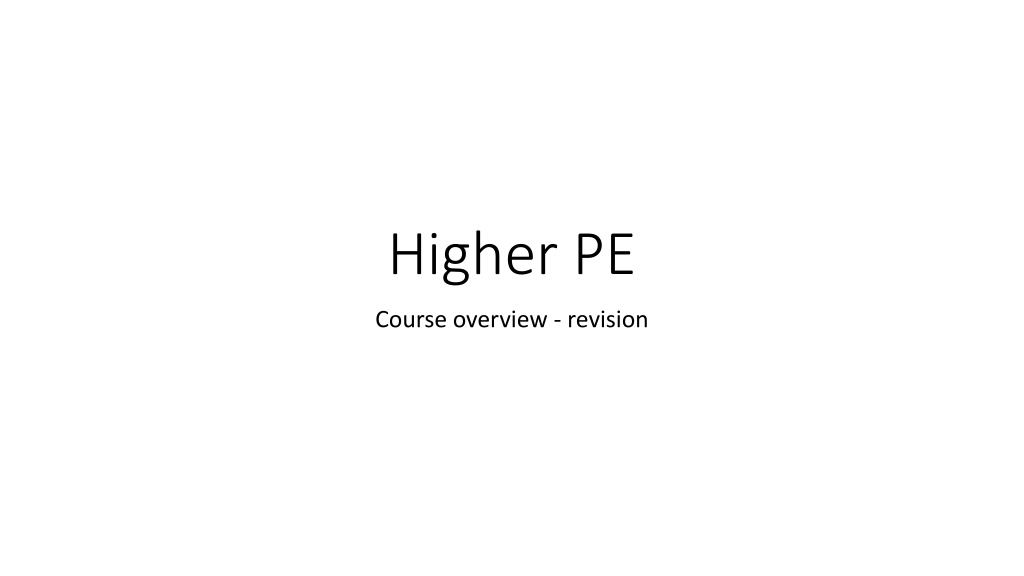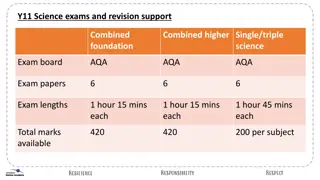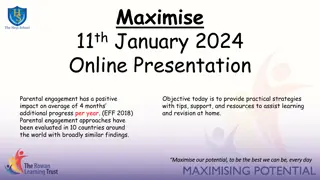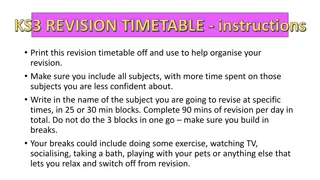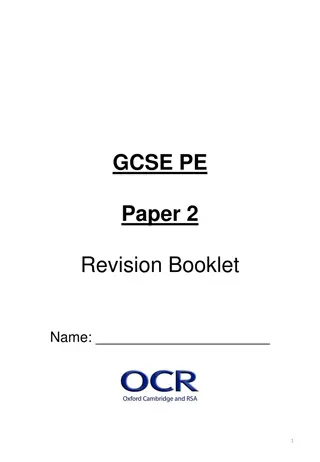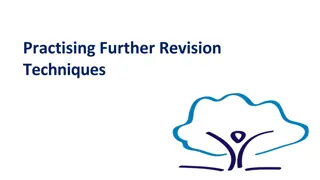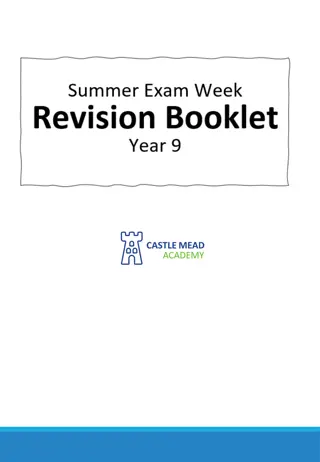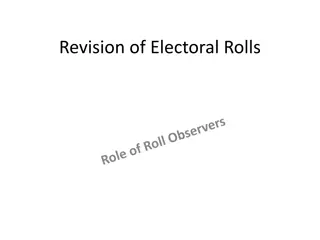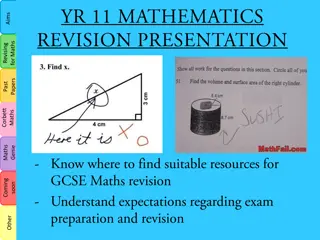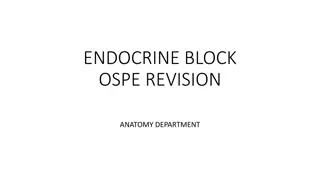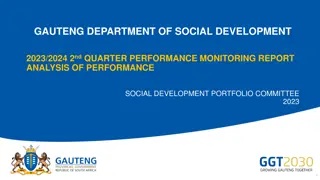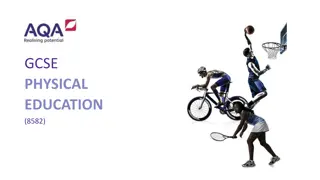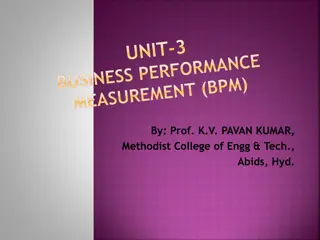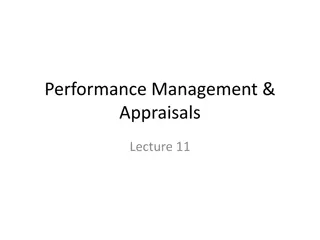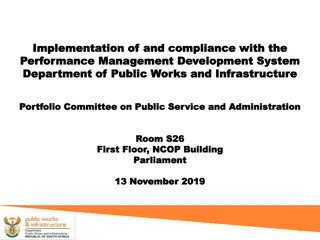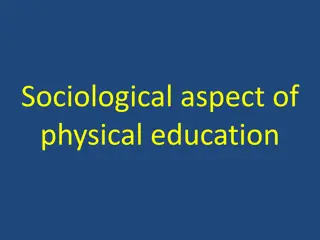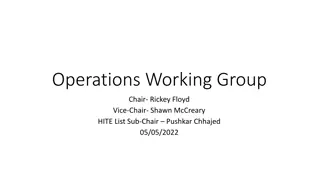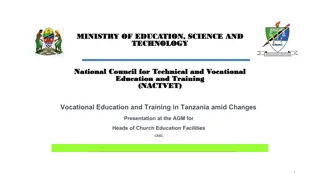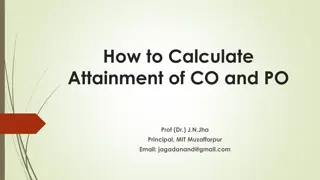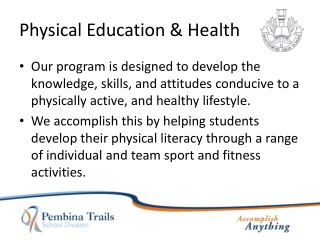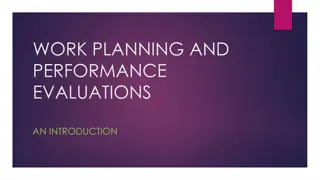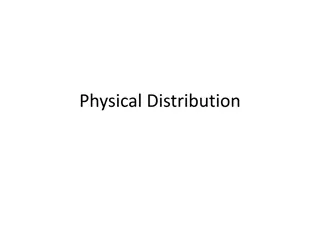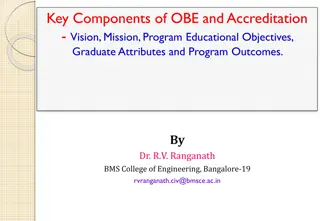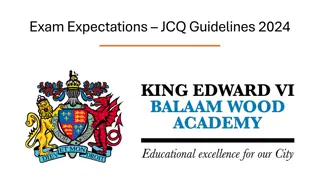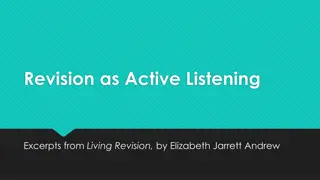Enhancing Performance in Physical Education: Course Overview & Revision
Explore methods of data collection, strengths, development needs, and approaches for improvement in swimming, mental conditioning, basketball, and volleyball. Learn how to monitor progress and address future development needs in various aspects of physical education.
Download Presentation

Please find below an Image/Link to download the presentation.
The content on the website is provided AS IS for your information and personal use only. It may not be sold, licensed, or shared on other websites without obtaining consent from the author. Download presentation by click this link. If you encounter any issues during the download, it is possible that the publisher has removed the file from their server.
E N D
Presentation Transcript
Higher PE Course overview - revision
Swimming Method of collecting data (MOCD) 200m frontcrawl swim test and 7 metre reaction test be able to describe, explain, analyse; Strength after taking data Reaction time Development need Lack of CRE (cardio respiratory endurance). Need to be able to discuss what the impact was on your performance; Approaches to development Interval, fartlek, continuous training; Monitoring Methods Training diary, teacher feedback, retest; Future development needs Poor tumble turn and flexibility; Approaches Dynamic flexibility practices, static stretch and PNF stretching.
Mental MOCD Motivation questionnaire and SCAT test; Strength Motivation Development need too high a level of arousal; Approaches Progressive Muscular Relaxation, mental rehearsal, focus word, controlled breathing, listening to music; Methods of monitoring same as physical Future development needs same as tumble turn and also processing information so can perform subroutines at speed and with quality and precision.
Basketball - social MOCD video analysis, performance POS sheet, game diary; Strength relationships; Development needs contribution to team; Approaches game related practices, small sided games, conditioned games; Monitoring game diary, teacher feedback; Future development needs conduct of self on court.
Basketball - emotional MOCD emotional sport questionnaire and game diary; Strength trust (in own ability and teams ability); Development needs fear (of ball and of making a mistake); Approaches same as mental factor and social factor; Monitoring same as social factor; Future development needs controlling your anger.
Volleyball - social MOCD - video analysis and game diary; Strength role models; Development needs roles and responsibilities (position 3 in attack and defence) Approaches see basketball Monitoring see basketball Future development needs conduct of self
Volleyball - emotional MOCD Emotional and sport questionnaire and game diary; Strength trust Development need fear; Approaches see social and mental Monitoring see basketball; Future development needs anger.
Badminton Strength overhead clear; Weakness Smash MOCD - general/performance observation schedule, scatter diagram and video analysis Approaches to development and stages of learning Stages of learning Cognitive (understanding stage), Associative stage (practice stage) and then Autonomous stage (model performer stage) Cognitive stage approaches to development Shadow practice, non opposed feeder drills. These allow you to understand the subroutines and are under no pressure from external factors such as competitors, hard drills etc.
Association stage Approaches to development Combination drill which was underarm serve, overhead clear and then smash; Pressure drill - where feeder feeds either in front on behind head, performer moves to then get in correct position to play smash. This is more game like and develops your skill. It can add to motivation and improve concentration;
Autonomous stage This is the model performer stage where you can easily do the subroutines and can now concentrate on other factors such as tactics where to play the shuttle based on your opponents weakness. Approaches to development 10 shot rally with variety of shots. Tenth shot must be a Smash; Conditioned game add in a rule which is not in the rule book e.g if you win the rally with a smash, you get double points.
Badminton Mental SCAT test Weakness too high a level of arousal Strength processing information Future development needs net shot and decision making.
